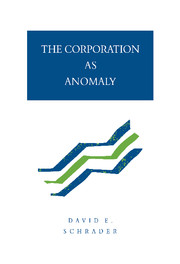Book contents
- Frontmatter
- Contents
- Preface
- Introduction
- 1 The hidden change in economic theory
- 2 Four views of scientific change
- 3 A glance at the history of economic theory
- 4 Agreement and disagreement within the tradition
- 5 Theories of the firm
- 6 Confusions and problems with the marginalist view
- 7 The shape of the large managerial corporation
- 8 The theoretical impact of a better theory of the firm
- Notes
- Bibliography
- Index
4 - Agreement and disagreement within the tradition
Published online by Cambridge University Press: 10 December 2009
- Frontmatter
- Contents
- Preface
- Introduction
- 1 The hidden change in economic theory
- 2 Four views of scientific change
- 3 A glance at the history of economic theory
- 4 Agreement and disagreement within the tradition
- 5 Theories of the firm
- 6 Confusions and problems with the marginalist view
- 7 The shape of the large managerial corporation
- 8 The theoretical impact of a better theory of the firm
- Notes
- Bibliography
- Index
Summary
I began Chapter 1 by noting Coats's claim that economic theory has been “dominated throughout its history by a single paradigm — the theory of economic equilibrium via the market mechanism” and Gordon's similar claim that “Smith's postulate of the maximizing individual in a relatively free market…is our basic paradigm.” If there is one single point that should be clear from the last two chapters it is that Kuhnian talk of paradigms and revolutions is simply not very helpful if we wish to understand the development of economic theory since 1776. The changes in economic theory have certainly been far too significant and fundamental to allow us to speak of that period as one of Kuhnian normal science. Yet as I noted in concluding Chapter 3, there are some continuities that have persisted in economic theory since Smith's writings. Moreover, I take it that most contemporary economists regard themselves as working in a scientific tradition that began with The Wealth of Nations. These factors constitute the kernel of truth that lies behind the claims of Coats and Gordon. They also set the agenda for this chapter, to identify what has remained the same in economic theory since the time of Smith and to come to greater clarity on the kinds of change that have occurred in economic theory since that time.
Agreement
If we are to speak with much precision, neither Gordon nor Coats manages to identify correctly the elements of continuity that have been maintained in economic theory since Smith.
- Type
- Chapter
- Information
- The Corporation as Anomaly , pp. 74 - 90Publisher: Cambridge University PressPrint publication year: 1993



